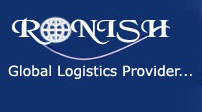
How do we reliably ship to Nigeria without delays, surprise costs, or compliance headaches? Global trade is pivoting toward Africa’s largest economy, and savvy exporters and importers are asking the same question. Shipping to Nigeria requires a solid grasp of trade regulations, precise paperwork, and a trustworthy local partner.
Whether you’re moving a single e‑commerce parcel or a full container load, this guide walks you through every step—so your cargo reaches Nigeria on time and within budget.
Why Businesses Worldwide Choose to Ship to Nigeria
Nigeria commands the largest GDP in Africa, a rising middle class of 50 million consumers, and ports positioned as gateways to ECOWAS. From fashion brands in Milan to tech firms in Austin, companies are lining up opportunities in Lagos, Abuja, Port Harcourt, and Kano.
- Booming E‑commerce: Online retail grew 30% year-on-year in 2024, driving parcel volumes.
- Oil & Gas Diversification: The government’s 2023–2027 plan slashes duties on machinery and renewables.
- Regional Trade Hub: AfCFTA grants Nigerian‑based warehouses duty‑free access to 1.3 billion people.
Pro Tip: Align your market entry with the Nigerian Customs “FAST‑TRACK” program to cut clearance from 72 hours to under 24.
Top Commodities You Can Ship to Nigeria Legally and Profitably
- Consumer electronics (HS 8517, 8528)
- Automotive spare parts (HS 8708)
- Fashion & apparel (HS 61 & 62)
- Health & beauty products (HS 3304)
- Industrial machinery (HS 84)
Always verify product-specific import guidelines on the Nigeria Trade Portal before booking freight.
How to Ship to Nigeria: Step‑by‑Step Logistics Workflow
Below is the proven roadmap used for thousands of shipments each year:
- Commercial Contract – Confirm Incoterms® 2020 (DAP and DDP are popular for Nigeria).
- Documentation Prep – Pro‑forma invoice, packing list, Form M, and NAFDAC permits (if applicable).
- Freight Booking – Ocean FCL/LCL, air freight, or express courier.
- Pre‑Shipment Inspection (PSI) – SONCAP or NESREA, based on product category.
- Cargo Insurance – CIF shipments must include marine coverage; Nigeria enforces strict claims windows.
- Customs Clearance – Submit Single Goods Declaration (SGD) electronically.
- Last‑Mile Delivery – Bonded trucking to Lagos, Abuja, or beyond using GPS‑tracked fleets.
Choosing the Right Transport Mode to Ship to Nigeria
| Mode | Transit Time | Ideal For | Typical Cost* |
| Ocean FCL | 30–45 days | 15‑20 MT, pallets, containers | $3 500–$4 200 / 40’ HC |
| Ocean LCL | 35–50 days | 2–10 CBM loose cargo | $65–$85 / CBM |
| Air Freight | 3–7 days | High‑value, <1 000 kg | $5–$7 / kg |
| Express Courier | 3–5 days | Samples, e‑commerce | $9–$12 / kg |
*Estimates ex‑works Shanghai to Lagos Apapa (Q2 2025)
Documentation Checklist When You Ship to Nigeria
- Form M (Central Bank import declaration)
- Pro‑forma & Commercial Invoices
- Bill of Lading / Airwaybill
- Packing List
- Certificate of Conformity (SONCAP) or Product Certificate
- Combined Certificate of Value & Origin (CCVO)
Missing any of these can add 2–7 days to clearance—and demurrage charges start after 3 days at major ports.
Costs, Duties, and Taxes: Budgeting for a Successful Shipment
Expect the following statutory charges upon arrival:
- Import Duty – 0‑35 % (HS‑code dependent)
- VAT – 7.5 % cumulative of CIF plus duty and taxes
- CISS (Comprehensive Import Supervision Scheme) – 1 % of FOB
- ETLS (ECOWAS Levy) – 0.5 % of CIF for non‑ECOWAS origin goods
Cheapest Way to Ship to Nigeria? For bulky but non-urgent cargo, LCL sea freight + consolidation in Europe or Dubai often beats air by 70%.
Compliance and Risk Mitigation When You Ship to Nigeria
- Pre‑Arrival Assessment Report (PAAR): Secure it before vessel docking to avoid hold.
- Anti‑Dumping Regulations: Electronics and steel receive heightened scrutiny.
- Restricted Items: Used clothing, certain pharmaceuticals, and firearms require special approvals.
- Cyber‑secure Tracking: Blockchain‑enabled portal locks data against tampering.
Ronish Nigeria Limited: Your Trusted Partner to Ship to Nigeria
Ronish Nigeria Limited has spent two decades mastering Nigerian customs corridors, maritime regulations, and last‑mile challenges. Our multilingual team handles everything from PSI scheduling to demurrage appeals.
What Sets Us Apart?
- All‑In‑One Service: Ocean, air, warehousing, and customs brokerage under one roof.
- Real‑Time Visibility: 24/7 tracking, milestone alerts, and predictive ETAs.
- Duty Optimization: Advanced HS‑code classification saves clients up to 14 % in landed cost.
- Sustainability Focus: We offset 100 % of scope 3 emissions for LCL shipments via Verra‑certified projects.
Ready to Ship to Nigeria? Act Now!
Take the First Step: Contact us today or email info@ronishlogistics.com to receive a guaranteed tailor‑made quote.
Frequently Asked Questions (FAQ)
Q1. Can I ship lithium batteries to Nigeria?
Yes—via air or sea if UN3480/81 packaging is followed.
Q2. How do I track my shipment after departure?
Our portal updates the vessel’s AIS position every 4 hours and sends SMS alerts at key milestones.
Q3. Which Nigerian port in Lagos is best for cars from the USA?
PTML. Use Grimaldi Line as carrier.
Disclaimer: Rates and regulations are subject to change. Always consult with Ronish Nigeria Limited.
